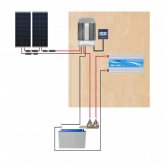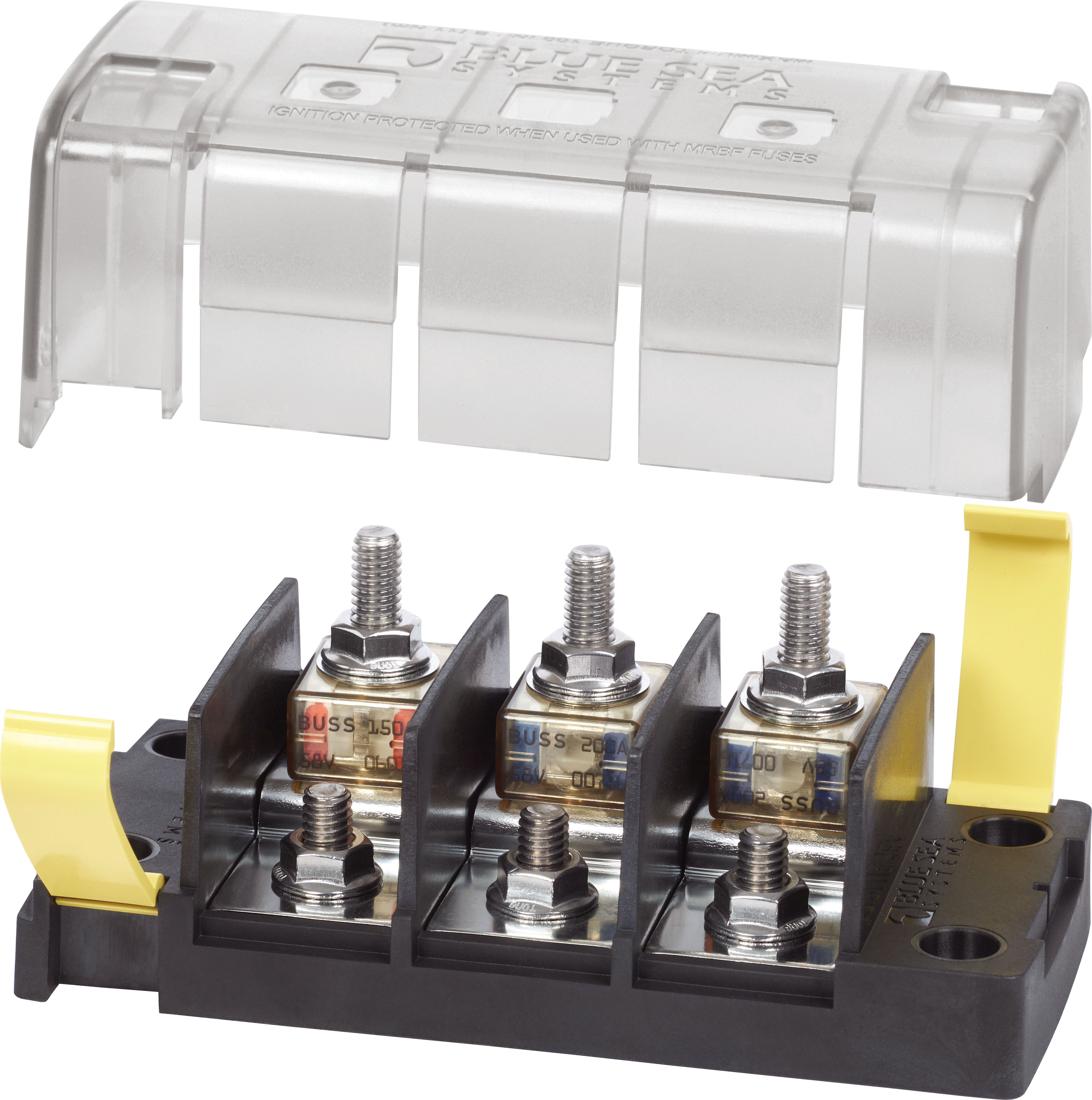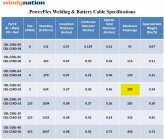kenkoh
Solar Enthusiast
Recommended by Steve_S & Bob142. This is so much cleaner and less cutting, crimping.
 baymarinesupply.com
baymarinesupply.com
Blue Sea 2151 Dual MRBF Terminal Fuse Block
<div class="product-description"> <p><span class="sddesc">These fuse blocks attach right to your 5/16" battery post, and accept connections with a 5/16" lug. This model is similar to the Blue Sea 5191, but has two separate fuses in the same assembly. <st








